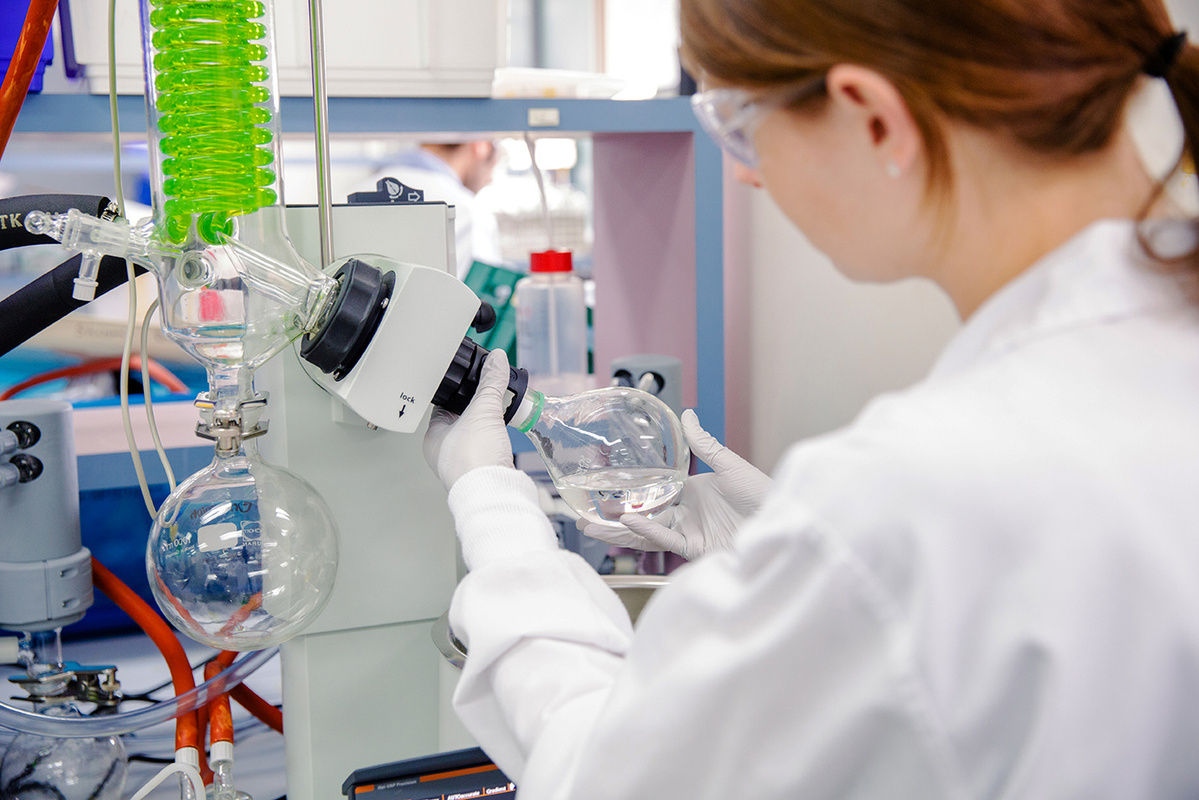
A woman works in a water testing lab of the Queensland Alliance for Environmental Health Sciences in Woolloongabba, Brisbane, Australia in this handout picture taken in 2019. (Photo: Agencies)
As pandemic slashes budgets, ax looms over thousands on Australian campuses
Thousands of researchers in Australia are expected to lose their jobs in the coming months because of the COVID-19 pandemic. Many of these will be foreign nationals, including Chinese, working on research projects in both the private and tertiary sectors.
A research report published on May 12 details how a dramatic drop in income from international student fees and business research spending will affect the sector significantly in the next 6 to 12 months.
University job losses of up to 21,000 full-time equivalent positions are projected in the next six months, of which an estimated 7,000 could be research-related academic staff.
Research interruptions as well as travel and visa restrictions suggest that more than 9,000 international research students, many of them Chinese, will not resume their research in 2020, according to the report's authors.
The report was produced by the Rapid Research Information Forum. The forum is chaired by Australia's chief scientist, Alan Finkel, and its operations are led by the Australian Academy of Science.
Kylie Walker, chief executive officer of the Australian Academy of Technology and Engineering, said industry sectors may experience a reduced capacity to innovate given that universities perform approximately 43 percent of all applied research in Australia.
"A decline in innovation may limit economic growth by slowing the development of new technology, skills, and efficiency gains in service and production processes," Walker said.
The report found the income of universities, medical research institutes, publicly funded research agencies and the industrial sector has suffered from the loss of foreign students and a sharp decline in business research spending and philanthropy.
"These impacts are greater than during the 2008 global financial crisis and are being observed internationally," the report said.
"To try and make ends meet as budgets contract, universities are reducing the number of casual teachers and increasing the teaching loads of permanent staff, further limiting their research capacity."
The report follows a request for advice from the National COVID-19 Coordination Commission on the impact of the pandemic on Australia's research workforce, and whether the country will have the research workforce capability to support recovery efforts.
Professor Marc Parlange, provost and senior vice-president at Monash University in Melbourne, said Australia's prosperity will be determined by how well it advances research and innovation to address the many hurdles that the nation and others across the world will face in the decades ahead.
Remarkable record
Despite the challenges posed by geographic isolation and a comparatively low population, Australia has attained a remarkable record for research excellence and contributes more than 4 percent of global scientific research publications with just 0.3 percent of the world's population, and has the third-highest number of top 100 universities globally.
Australian research has driven the creation of numerous startups, new technologies, new industries, and jobs, Parlange said.
"This reputation for research excellence creates further benefits in turn, attracting international talent and fostering deeper cross-border relationships and trade," he said.
"The disruption to Australia's research due to COVID-19 is without precedent. How we respond to sustain our researchers and research platforms during this crisis and throughout the recovery will influence the shape and prosperity of our society for many years."
Professor Tony Peacock, chief executive of the Cooperative Research Centres (CRC) Association, said that in the short-term, CRCs are helping as much as possible with the response to COVID-19, like the conversion to telehealth, testing for the virus and the manufacture of personal protective equipment.
"Medium term, because CRCs rely on collaboration, there are delays to research that need to be conducted on multiple sites," he said.
"Longer term, Australia's very high reliance on university-based researchers will have lasting consequences, as they are drawn to focus on their teaching responsibilities and simply won't be as available to conduct research for industry as they have been in the past."


